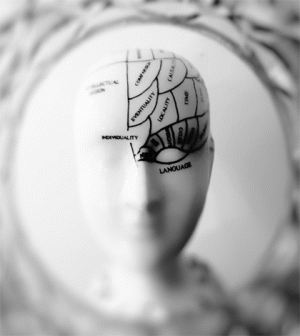
By Jean Janki Samaroo
The saying that you’re never too old to learn is so true. I had never heard the term “psychological richness” used in relation to the good life until just recently. The concept of a happy life, a meaningful life, a fulfilled life, were all familiar to me as well as the terms themselves. After all, even at 71 those are still the things that I’m seeking daily in order to make my life count.
In a Scientific American article, the humanistic psychologist, Scott Barry Kaufman said “The psychologically rich life is full of complex mental engagement, a wide range of intense and deep emotions, and diverse, novel, surprising and interesting experiences. Sometimes the experiences are pleasant, sometimes they are meaningful, and sometimes they are neither pleasant nor meaningful. However, they are rarely boring or monotonous.” If the elements described above are already part of your life, kudos to you. You’re already living a “psychologically rich” life.
For most of the world’s population, happiness is as far as they get. Happiness is a basic need for every living person. It’s the same in that we all want it and it’s different in that what makes you happy may not necessarily be the thing that makes me happy.
Your idea of happiness may be to get married and have your own home and family and my idea may be to start my own business. For a poor person, happiness may be having food, clothing, and shelter. Whatever you choose for yourself that makes you happy is all that’s important here.
The Dalai Lama sums it up well when he says that “No matter what part of the world we come from, we are all basically the same human beings. We all seek happiness and try to avoid suffering. We have the same basic human needs and concerns. All of us human beings want freedom and the right to determine our own destiny as individuals and as peoples. That is human nature.”
However, it’s only a fraction of the general population who have the luxury of pondering the deeper meaning of life and their own life in particular. Meaningful and fulfilling lives are like the icing on the cake. Living this kind of life means that we’ve gone way beyond meeting our basic needs for sustenance, safety, and self-esteem. People who fall into this category have had time to do some soul-searching.
“Your long-term happiness and fulfillment depend on your ability to fulfill your soul’s unique purpose and to fill the place in the world that only you can fill, making the contribution that only you can make.” Rod Stryker
You may be one of those people who are happy, fulfilled and living a meaningful life already. Would “psychological richness” be something you want to add to your repertoire?
Researchers on well-being have done many studies on “psychological richness” and continue to work with different populations. I’ve taken a look at some of the reporting and find it very interesting. A study was done, for example, with two groups of students. One group studied at home and the other studied abroad. It was found that those who studied abroad experienced more psychological richness. Nothing changed for those who stayed at home. (Oishi, Choi, Liu, & Kurtz, 2020)
What this study reveals is that those who studied abroad were exposed to many different experiences – perhaps a different culture, different people, different food, different language, and so much more. Their new environment exposed them to what they didn’t have at home. There was room for growth and greater awareness. This made them psychologically richer.
While there’s still a lot to learn about “psychological richness,” it feels like it could be a natural progression from a happy, fulfilled, and meaningful life or part of it. To reach the level where one is able to look at one’s life objectively and decide to live in a distinctive way where one accrues meaning to one’s life is an achievement.
In Kaufman’s definition of “psychological richness,” he says that this kind of life is rarely boring and monotonous. If you thrive on growth and newness like I do, this may be your cup of tea. We can’t be complacent here. Let’s go for “psychological richness.” “Life begins at the end of your comfort zone.” ~ Neale Donald Walsch
********
 Jean Janki Samaroo lives in Toronto. She is the self-published author of two books. “Late Blooms” is an inspirational book for Senior Citizens and “Making New Friends” is a children’s picture book. These are both available on Amazon.
Jean Janki Samaroo lives in Toronto. She is the self-published author of two books. “Late Blooms” is an inspirational book for Senior Citizens and “Making New Friends” is a children’s picture book. These are both available on Amazon.
https://www.amazon.com/author/jeansamaroo
She enjoys writing and has her own blog called “Late Blooms.” https://late-blooms.jeanjankisamaroo.com
She studied Library Arts at Ryerson University and is also a certified TESL/TEFL instructor. Her writing explores many diverse topics.

